
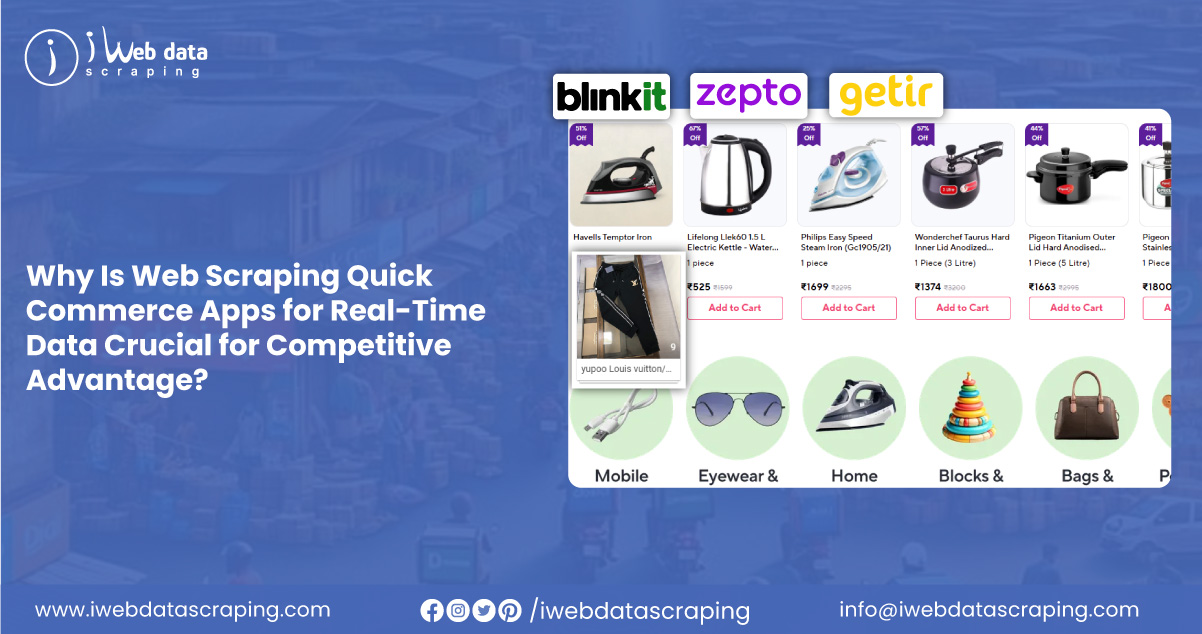
Quick commerce (Q-commerce) transforms retail by offering ultra-fast delivery of everyday essentials, often within minutes. Platforms like Blinkit, Zepto, Gorillas, and Getir are at the forefront, meeting the growing demand for convenience and speed. Web Scraping Quick Commerce Apps for Real-Time Data is a critical driver behind this success, which allows businesses to analyze trends, adapt strategies, and stay competitive.
By leveraging Quick Commerce App Data Scraping Services, businesses can track competitors’ pricing, monitor product availability, and understand consumer preferences. These insights are essential for maintaining an edge in the fast-paced Q-commerce ecosystem. For example, the ability to Scrape Product Listings from Quick Commerce Apps helps companies optimize inventory, identify gaps, and tailor their offerings to customer demands.
This article explores the significance of web scraping in Q-commerce, its practical applications, challenges, and how it transforms the retail landscape for industry stakeholders.
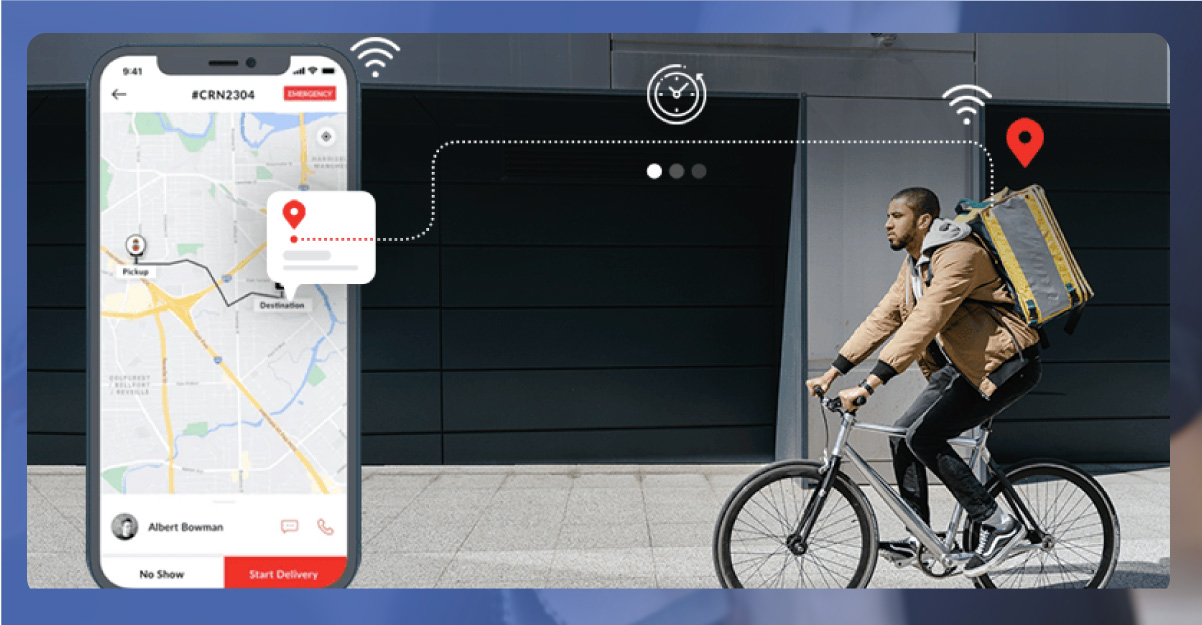
Q-commerce caters to the on-demand economy, where customers prioritize speed and convenience. Unlike traditional e-commerce platforms, Q-commerce apps focus on delivering smaller baskets of goods, such as groceries, snacks, and medicines, in record time. The model thrives on local warehouses or dark stores in densely populated urban areas.
The rapid growth of Q-commerce necessitates constant monitoring of market trends, inventory, and pricing. To stay competitive and optimize operations, businesses rely on Quick Commerce Data Extraction API to automate data collection. This technology enables companies to Extract Product and Pricing Data from Quick Commerce Apps, gaining real-time insights into market dynamics. Furthermore, Scraping Quick Commerce Application Data allows businesses to track competitors’ offerings, monitor stock levels, and adjust pricing strategies quickly to meet customer demands. Web scraping has become an invaluable tool in Q-commerce, providing businesses with the critical data they need to thrive.
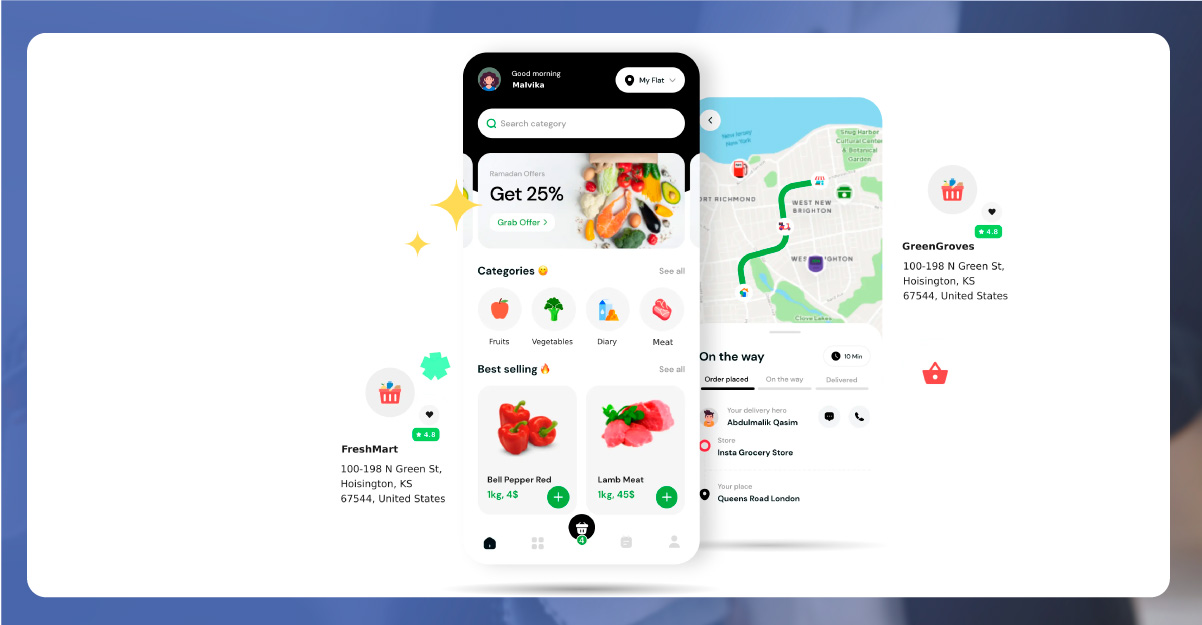
Web scraping plays a pivotal role in quick commerce apps, providing real-time insights into product availability, pricing trends, and consumer preferences. By leveraging web scraping, businesses can optimize inventory, enhance logistics, and stay competitive in the rapidly evolving market.
Pricing is a significant battleground for Q-commerce apps. Consumers often compare prices across platforms before purchasing, making competitive pricing essential for customer retention. Web Scraping Quick Commerce Data enables businesses to monitor real-time pricing trends across rival platforms. By gathering data on product prices, discounts, and promotional offers, companies can adjust their pricing strategies dynamically, ensuring they remain attractive to consumers while protecting profit margins. This process can be enhanced with Quick Commerce Product Price Data Scraping to automate the tracking of competitor prices.
Out-of-stock products can lead to customer dissatisfaction and lost sales. Scrape Quick Commerce Inventory Data to help Q-commerce platforms track competitor inventory levels, providing insights into which products are in high demand or undersupplied. This data helps businesses optimize inventory management, ensuring they stock the right products to meet consumer needs effectively.
Understanding consumer behavior is crucial in Q-commerce, where trends shift rapidly. Businesses can identify emerging consumer preferences by scraping app reviews, ratings, and frequently purchased items. For instance, increased searches for organic or gluten-free products can guide inventory decisions and marketing campaigns. Grocery App Data Scraping Services play a key role in gathering such insights.
Delivery efficiency is the backbone of Q-commerce. Web scraping can help companies gather data on delivery times, geographic coverage, and customer satisfaction from competitors. Analyzing this data enables businesses to fine-tune their logistics operations, reduce delivery times, and expand into underserved areas, benefiting from Grocery Delivery Scraping API Services for real-time data collection.
Different regions often exhibit varying shopping patterns. Web Scraping Quick Commerce Data allows Q-commerce platforms to collect and analyze data by location, uncovering regional preferences. For example, certain cities may see higher demand for products like ready-to-eat meals, while others may prioritize fresh produce. Tailoring offerings based on regional data enhances customer satisfaction and boosts sales.
Web scraping helps businesses monitor competitors’ advertising campaigns, promotional offers, and loyalty programs. By understanding what resonates with consumers, companies can refine their marketing strategies to stay ahead in the highly competitive Q-commerce market. A Grocery Price Dashboard can provide continuous updates to track pricing changes and competitor strategies.
Scraping data from competitors’ product catalogs provides insights into potential gaps in a Q-commerce platform’s offerings. By identifying frequently searched unavailable items, businesses can expand their catalogs strategically, ensuring they meet consumer demand comprehensively. Grocery Pricing Data Intelligence can aid in identifying high-demand products and predicting the best products to add to their inventory.
Grocery Price Tracking Dashboard and web scraping historical and real-time data from Q-commerce platforms enable businesses to forecast demand accurately. This is particularly useful during peak shopping seasons or festivals when consumer demand surges for specific products. Accurate forecasting helps businesses prepare their supply chains and avoid stockouts or overstocking. Grocery Delivery Scraping API Services can assist in pulling the necessary data for these forecasts.
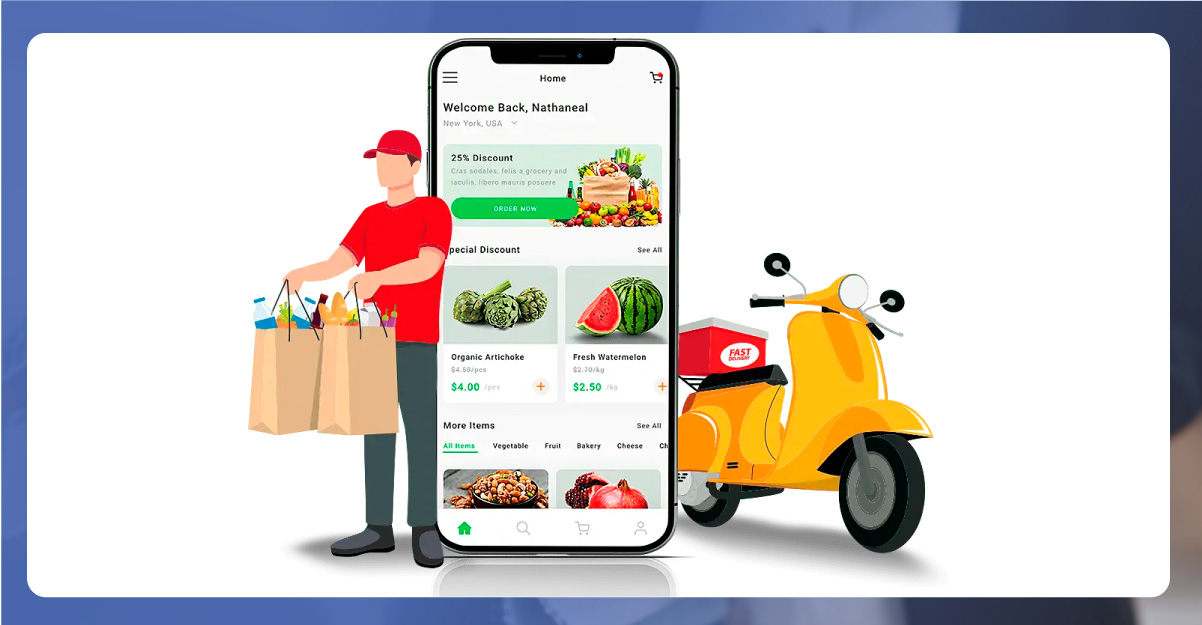
Web scraping offers significant benefits for Q-commerce platforms, including real-time data collection on pricing, inventory, and consumer behavior. It enables businesses to optimize their strategies, improve customer experience, enhance delivery logistics, and stay ahead in the competitive landscape.
1. Data-Driven Decision Making
Web scraping empowers businesses with actionable insights, allowing them to make informed decisions. From pricing strategies to product selection, data-driven approaches improve efficiency and profitability.
2. Enhanced Customer Experience
By analyzing consumer preferences and shopping patterns, businesses can deliver personalized experiences, which can lead to higher customer satisfaction and loyalty.
3. Improved Operational Efficiency
Scraping data on delivery times, inventory levels, and product trends helps businesses optimize operations and ensure seamless service delivery.
4. Competitive Edge
In the fast-moving Q-commerce industry, staying ahead of competitors is essential. Web scraping provides the intelligence needed to anticipate market trends and outperform rivals.
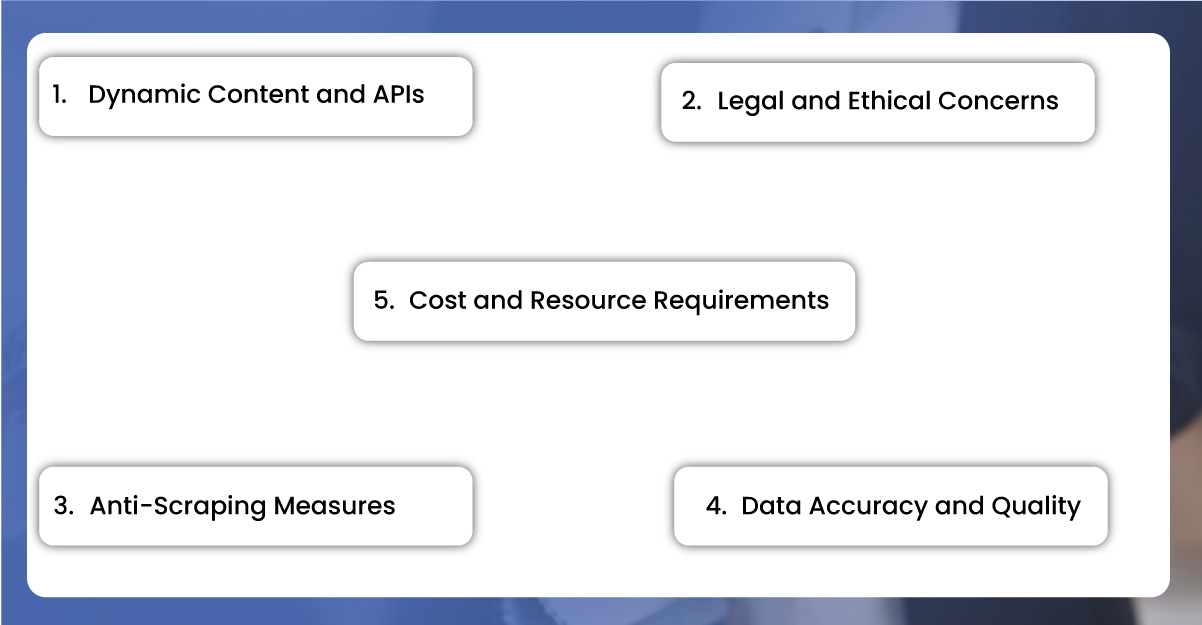
While web scraping offers immense benefits, it comes with its share of challenges:
1. Dynamic Content and APIs
Q-commerce apps often use dynamic content and APIs, making data extraction challenging without sophisticated scraping tools. Advanced solutions, such as headless browsers or API integration, are often required to overcome these obstacles.
2. Legal and Ethical Concerns
Scraping data from platforms without permission may raise legal and ethical questions. Businesses must ensure compliance with data privacy regulations and website terms of service to avoid potential legal repercussions.
3. Anti-Scraping Measures
To protect their data, q-commerce platforms implement anti-scraping mechanisms like CAPTCHAs, IP blocking, and rate limiting. Overcoming these measures requires robust strategies, such as rotating proxies and adhering to polite scraping practices.
4. Data Accuracy and Quality
Ensuring the accuracy and reliability of scraped data is critical. Consistent or outdated data can lead to correct insights and better decision-making.
5. Cost and Resource Requirements
Setting up and maintaining web scraping infrastructure requires technical expertise, time, and financial resources. Businesses must weigh the costs against the potential benefits to ensure a positive return on investment.

To harness the benefits of web scraping while avoiding legal risks, businesses should adopt ethical practices:
Adhering to ethical guidelines enables businesses to leverage web scraping effectively without compromising their reputation.

As Q-commerce continues to evolve, the role of web scraping will become even more critical. Emerging technologies such as artificial intelligence and machine learning will enhance the capabilities of data scraping, enabling more profound insights and predictive analytics. Businesses that integrate web scraping into their operations will be better equipped to navigate the challenges of the Q-commerce industry and capitalize on its growth opportunities.
Web scraping is an indispensable tool for Q-commerce platforms seeking to thrive in a competitive market. From pricing analysis and inventory management to understanding consumer preferences and optimizing logistics, web scraping enables data-driven strategies that drive growth and efficiency. Businesses can track and analyze real-time pricing trends by using a Grocery Price Tracking Dashboard, ensuring they stay competitive. Supermarket Grocery Data Scraping also helps gather valuable insights into competitor offerings and product availability. Grocery Store Datasets provide platforms with extensive data on consumer behavior, allowing them to refine their inventory and marketing strategies.
Experience top-notch web scraping service and mobile app scraping solutions with iWeb Data Scraping. Our skilled team excels in extracting various data sets, including retail store locations and beyond. Connect with us today to learn how our customized services can address your unique project needs, delivering the highest efficiency and dependability for all your data requirements.